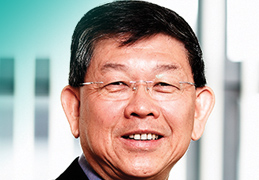Higher Education institutions across the globe are struggling in how to maintain relevance in the fast changing world. For higher education institutions to play a relevant role in the 21st Century there is no option but to respond to the changes in a proactive way, otherwise their graduates may find difficulties adapting to or meeting the demands of the 21st Century. To respond to changes, we need to know what these changes are. The first 15 years of the 21st Century has been characterised by 6 key features.
1. The world landscape has been described by thought leaders as being a VUCA environment – Volatile, Uncertain, Complex, Ambiguous. Bennett and Lemoine (2014) summed up this environment in a simple phrase “Hey, it’s crazy out there”. How does Higher Education manage in such an environment?
2. Fast technological advancements that impacted on changing job skills, lifestyle and the living environment. Every sphere of life today is impacted one way or other by technological advancement. How would this impact Higher Education?
3. Knowledge is estimated to be doubling every 12 months and is anticipated to double every 12 hours soon with the Internet of Things (IoT) coming into play (Schilling, 2013). In the landscape of knowledge explosion, what would be taught in Higher Education?
4. Transformation in the social media is impacting communication, dissemination of information that demands a need for values and ethics; understanding responsibilities in a world of total freedom.
5. There is a changing profile of our learners. They are described as EPIC learners (Experiential, Participatory, Image-driven, Connectedness). How would this impact the delivery of Higher Education to enhance learning among our digital natives?
6. Increasing life span of the human race. Owing to advancement of medical knowledge, there is a dramatic increase in average life expectancy during the 20th Century and this trend continues in the 21st Century. The current leader, Japan, has recorded that life expectancy at birth now exceeds 83 years in Japan. How such a trend would affect Higher Education is another point for consideration.
In the light of the above, how can Higher Education evolve to be relevant with the needs and demands of the 21st Century landscape? There is no one right answer in this dynamic and ever changing world. Perhaps, a series of questions should be asked to help guide the consideration of the issue of “maintaining relevance” in the process of evolving Higher Education into the future.
1. What should be the outcomes of higher education that graduates need to be relevant to this new world?
2. How can the curricula be designed and structured to achieve such outcomes?
3. How can the curricula be delivered to meet the needs of 21st Century leaners to achieve the outcomes?
4. What roles does technology play in higher education?
5. How can the Learning Environment be transformed to be relevant for the 21st Century higher education?
6. Is the current mode of certification still relevant?
7. Should there be a shift in research policy? Is the notion of Publish or Perish still stand?
8. What about administrative policies? How should they evolve?
The Nanyang Technological University in Singapore (NTU Singapore) has been ever conscious of maintaining relevance in the education that the University delivers to develop graduates with the relevant attributes to meet the demands of the 21st Century landscape. An extensive review was conducted in 2007 in anticipation of the tsunami of changes that are evolving. The review committee identified 5 attributes that need to be developed in our graduates to prepare them to be relevant. These attributes are Character, Competence, Civic-Mindedness, Creativity and Communication. These form the core of NTU Education. These attributes must be viewed as the Outcomes of NTU Education, hence requiring every programmes to be reviewed so that each of these outcomes can be clearly defined. Such articulation will clearly define what each programme is and will allow the society to define who a NTU graduate is. The articulation, in defining each programme will be a continual journey so as to ensure that the outcomes will be relevant to the landscape anticipated at the time. A set of 5 initiatives was articulated and refined last year to guide the design and delivery of NTU Education in order to achieve the attributes and desired outcomes. The 5 strategic initiatives are as follows.
1. Develop a culture of responsiveness, relevance and rigour 2. Enhance teaching excellence
3. Empower learning through technology enablers
4. Enhance learning beyond the curriculum
5. Enrich undergraduate education and improve postgraduate education
One may observe that the values from the bulk of the outcomes. This is by designs based on the rationale that the competence can be achieved through lifelong learning and good grounded values will drive the person to embark on lifelong learning.


